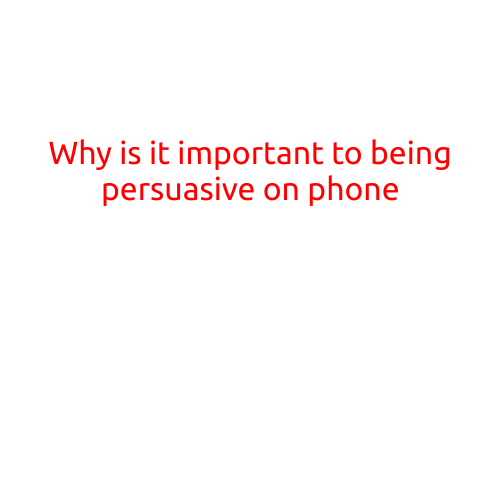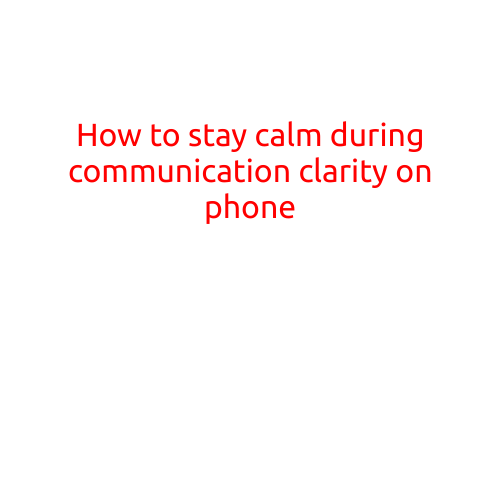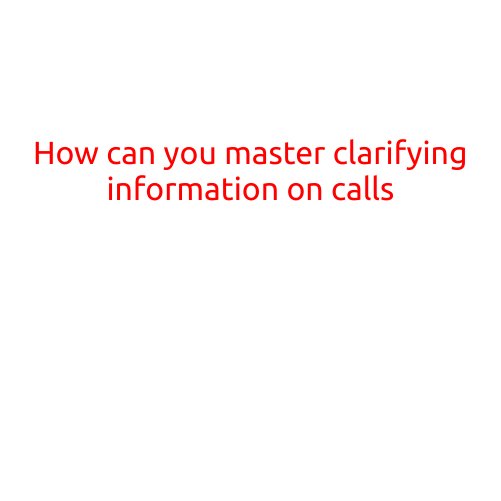
Why is it Important to Be Persuasive on Phone?
In today’s digital age, the art of persuasion has taken on a new dimension. The rise of mobile phones and social media has made it essential for individuals to develop the skill of persuasive communication, particularly when interacting over the phone. Gone are the days of face-to-face interactions; persuasive phone conversations can make or break a deal, seal a partnership, or win over customers.
The Power of Persuasive Phone Calls
A persuasive phone call can achieve a range of benefits, including:
- Increased Conversions: Persuasive phone calls can result in higher conversion rates, whether it’s selling a product, closing a deal, or securing a partnership.
- Building Trust: Effective communication and persuasion over the phone can establish trust with clients, customers, or partners, leading to long-term relationships.
- Improved Communication: Persuasive phone calls require active listening, clear articulation, and thoughtful responses, which can strengthen communication skills and reduce misunderstandings.
- Enhanced Customer Experience: Persuasive phone calls can lead to a better overall customer experience, fostering loyalty and advocacy.
Challenges of Persuasive Phone Calls
However, persuasive phone calls also present unique challenges, including:
- Lack of Nonverbal Cues: Nonverbal cues like body language and facial expressions are absent in phone calls, making it essential to rely on verbal communication skills.
- Distractions: Phone calls can be interrupted by distractions like background noise, interruptions, or technical issues.
- Time-Sensitive: Phone calls often have a limited time frame, requiring individuals to be concise and focused.
Tips for Being Persuasive Over the Phone
To overcome these challenges and be persuasive over the phone, consider the following tips:
- Prepare Thoroughly: Research and prepare for the call by gathering necessary information and rehearsing key points.
- Active Listening: Listen attentively to the caller, ask open-ended questions, and respond thoughtfully.
- Clear and Concise Communication: Speak clearly, avoid jargon, and use simple language to convey your message.
- Show Empathy and Understanding: Demonstrate empathy and understanding by acknowledging the caller’s concerns and needs.
- Take Notes: Take notes during the call to ensure accuracy and follow up on any key points or actions discussed.
Conclusion
In conclusion, being persuasive over the phone is essential in today’s fast-paced, digitally driven world. By understanding the importance of persuasive phone calls, recognizing the challenges that come with them, and applying effective communication strategies, individuals can build trust, increase conversions, and improve customer experiences. Whether you’re a sales representative, a customer service agent, or a business owner, mastering the art of persuasive phone conversation can transform your interactions and achieve desired outcomes.





